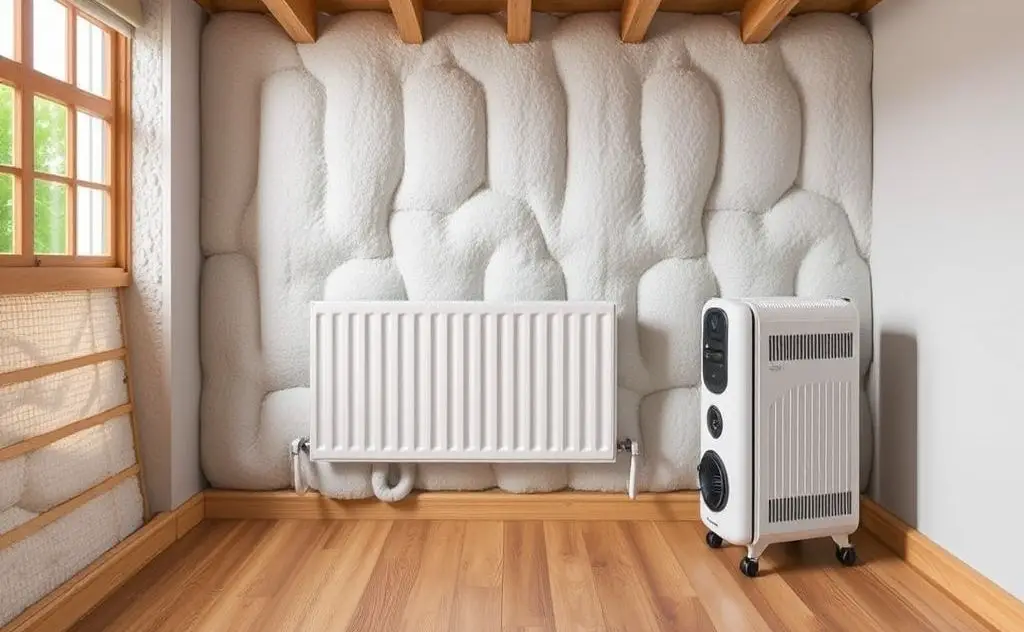Yes, proper insulation significantly enhances the energy efficiency of heaters by reducing heat loss, leading to lower energy consumption and costs.
Insulation directly impacts how efficiently your heater operates. Proper insulation reduces heat loss, allowing your heating system to work less while maintaining comfort. This translates to lower energy bills and extended equipment lifespan.

The Science Behind Insulation and Heating Efficiency
Heat naturally flows from warmer to cooler spaces. In winter, your heated air escapes through walls, attics, and floors. Insulation creates a thermal barrier that slows this heat transfer.
R-Value: Measuring Insulation Effectiveness
The R-value measures insulation’s resistance to heat flow. Higher R-values mean better performance:
| Insulation Type | R-Value per Inch |
|---|---|
| Fiberglass batt | 3.1-4.3 |
| Cellulose | 3.2-3.8 |
| Spray foam | 6.0-7.0 |

Where Insulation Matters Most for Heating Systems
Attic Insulation
Heat rises, making attic insulation critical. The U.S. Department of Energy recommends R-38 to R-60 in most climates.
Wall Insulation
Proper wall insulation can reduce heat loss by 25-35%. Consider modern insulation materials when upgrading.
Basement and Crawlspace Insulation
Uninsulated floors above cold spaces account for 10-20% of heat loss.
Real-World Impact on Different Heating Systems
Forced Air Systems
Insulation reduces ductwork heat loss. Combine with efficient gas heaters for maximum savings.
Radiant Heating
Insulation beneath radiant floors improves heat direction into living spaces.
Heat Pumps
Proper insulation allows heat pumps to maintain consistent temperatures without frequent cycling.
Financial Benefits: Tax Credits and Savings
The IRS Energy Efficient Home Improvement Credit offers:
- 30% credit on insulation costs (up to $1,200 annually)
- Additional credits for high-efficiency heating systems
Common Insulation Mistakes to Avoid
Compressed Insulation
Compressing fiberglass reduces its R-value by up to 50%.
Gaps and Voids
Even small uninsulated areas significantly reduce effectiveness.
Ignoring Air Sealing
Insulation works best when combined with proper air sealing techniques.
When to Upgrade Your Insulation
Consider improvements if:
- Your heater runs constantly in cold weather
- You notice uneven heating between rooms
- Your home is older than 20 years
- You’re replacing your heating system
Professional vs. DIY Insulation
While some insulation projects are DIY-friendly, complex jobs like spray foam or attic work often require professionals. The investment typically pays for itself in 3-5 years through energy savings.
